Confusing game endings explained
Gaming's most befuddling finales explained both in a sentence and in detail
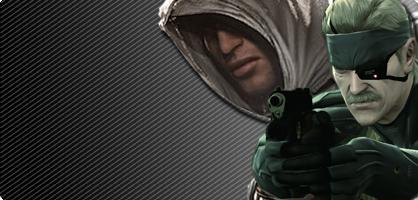
Astrophysics are a touch bewildering. And love is a bit of a noodle-scratcher. But a convoluted, multi-layered plot about a genetically engineered pensioner; now that’s really complicated.
The following game endings are all either vague, slightly ambiguous or just downright indecipherable without advanced degrees in picking up on minuscule - but vastly important – plot details. In an effort to make things a little easier, we’ve broken down the following six confusing endings so they can be explained in a sentence, while also including a detailed Q&A for each for anyone who wants all the details. Simple, eh?
Oh, and obviously this article contains... MASSIVE SPOILERS!

The short version: The princess doesn’t exist, instead representing Tim’s guilt over helping build the A-Bomb.
Once more…
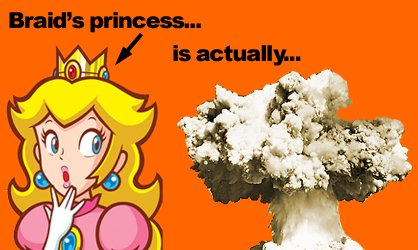
The long version:
I just wanted to jump on baddies’ heads, but now I’m all confused. Does Tim actually rescue the princess?
Sign up to the GamesRadar+ Newsletter
Weekly digests, tales from the communities you love, and more
In a word, no. The Princess doesn’t actually exist and instead represents Tim’s obsession with the A-Bomb. Our hero is not a brave warrior in a fantastical kingdom, but is instead actually a weapons’ scientist based in New York. He was involved in the Manhattan Project that gave birth to the Atomic Bomb, the first of which would be dropped on Hiroshima and Nagasaki in 1945, effectively ending the Second World War.
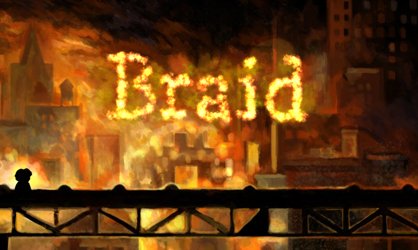
So the events of the game aren’t real then?
Nope. The entire game is actually a succession of Tim’s dreams and the gameplay mechanics involving time manipulation are merely in place to convey the themes of regret and the desire to do things differently that are so prevalent in his mind thanks to his involvement with the bomb. That’s why the final level is actually the first level and the entire game that follows is Tim’s way of trying to replay events and change his relationship with the Princess/A-Bomb.
Super, I’m on board now. Things aren’t real, but still, what the hell’s going on in the level before the epilogue?
When you reach the end of Act 1 (the game’s final level) the game rewinds. In the normal passage of time it looks like the Princess is aiding you, so that you can be reunited. When the level rewinds, though, you discover the truth. The Princess is really fleeing from you, the knight who appears to capture her is actually saving her and all because, in reality, you’re the bad guy who’s been stalking her, not trying to rescue her.
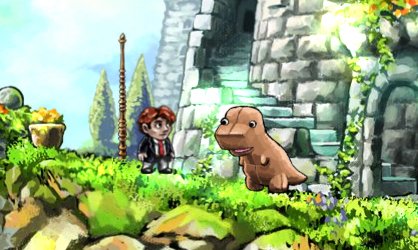
Hmmm. So why is Tim so obsessed with finding The Princess/A-Bomb if he’s actually the bad guy?
The stalking of the Princess is Tim’s way of trying to alter events to appease his guilt for the creation of the bomb. He knows he participated in a terrible act, which his natural inquisitiveness as a scientist drove him to. However, he’s got enough self-awareness to regret his actions and that’s why levels are themed around rewinding time, stepping outside of yourself and being given a second chance. Tim needs to find the Princess/Bomb because he seeks forgiveness. What initially appears as a quest fuelled by heroism is actually one fuelled by obsession and remorse.
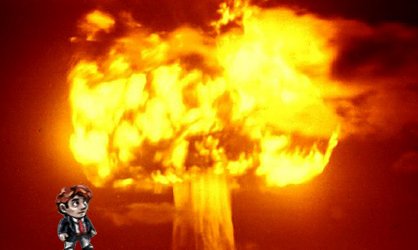
What does the epilogue mean?
Provided you stand behind specific bits of scenery, you’re rewarded with the game’s true message. Quotes like: ‘Now we are all sons of bitches’ – uttered by Kenneth Bainbridge, one of the scientists from the Manhattan Project after the initial testing – and: ‘She stood tall and majestic. She radiated fury’ – alluding to the explosion and subsequent mushroom cloud from the A-Bomb – shows Braid is really about the regret of the birth of the atomic age. And not merely a Mario clone where you have to save the damsel in distress.

David has worked for Future under many guises, including for GamesRadar+ and the Official Xbox Magazine. He is currently the Google Stories Editor for GamesRadar and PC Gamer, which sees him making daily video Stories content for both websites. David also regularly writes features, guides, and reviews for both brands too.


